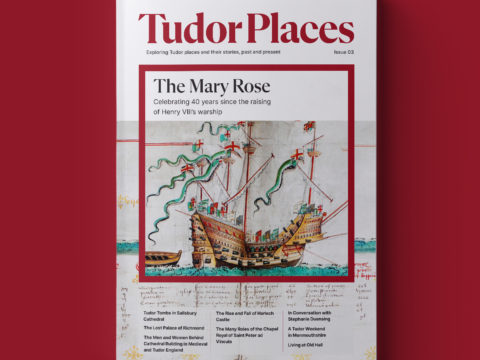Thomas More: Life Story
Chapter 11 : Speaker of the House of Commons
It was important that the Speaker in the 1523 Parliament should be a reliable man. Henry and Wolsey were hoping to raise significant amounts of taxation to prosecute yet another war in France. Proceedings were opened by Cuthbert Tunstall, now Bishop of London. Henry, Archbishop Warham and the Cardinal were all in attendance. So, too was a man around five years younger than More, who would soon be one of the Cardinal’s own household - Thomas Cromwell.
According to More’s son-in-law and first biographer, Roper, More was insistent that the Commons should be granted ‘immunity’. That is, that the King would not punish any member who spoke against royal policy. Marius points out that previous Parliaments had already enjoyed such liberty, but that More’s clarification of why it was important, and his espousal of the benefit of decisions being taken collectively, have caused him to be remembered for it.
It was for this Parliament that Cromwell wrote, and perhaps delivered, the argument against voting taxation for the war in which he memorably characterised the towns that Henry had won in 1512 as ‘ungracious dogholes’. It is likely that in this he and More were in agreement, as prior to the Parliament, More had given a very guarded approval to the request for money, hoping that Henry was right that a war would benefit the country, or, if not, that an honourable peace might be obtained.
As Speaker, it was More’s job to repeat the speech that the Lord Chancellor (Wolsey) had made in the Lords, to the Commons. He asked for a subsidy of four shillings in the pound – that is, a tax of 20%. The Commons were not impressed, pointing out that there was not that much ready cash in the whole country, and even if there had been, collecting it all in for the King would put a complete stop on trade. People would be reduced to barter.
Outraged at this disobedience, the Cardinal, against all custom, went to the Commons and harangued them in person. Rather than argue, the whole House sat silent until the humiliated Cardinal was obliged to sweep out in a swish of red silk.
The final grant was for a shilling in the pound, on those with goods of £50 or more – still a very high tax. Whilst Roper maintains that More’s brilliant arguments persuaded Henry and Wolsey to accept a lesser amount, the chronicler Hall (who did not like More) records that the Speaker spent weeks negotiating between the sides. The stories are not incompatible – it is just that Hall makes More a pains’-taking negotiator, whilst Roper sees him as an angel of eloquence.
Roper then concludes that Wolsey blamed More for the failure of his plan, and hatched a scheme to have him sent to Spain as ambassador. This hardly equates with the letter from Wolsey to Henry praising More’s efforts and diligence, and recommending a bonus of £100. Wolsey added that he was reminding Henry that such payments were customary as More ‘is not the most ready to speak and solicit in his own cause.’ More was clearly a diligent servant of the Crown, whatever he might have thought of excessive taxation as a London citizen.
With increased rewards, and new appointments being made regularly, such as the Stewardship of the Universities of both Oxford and Cambridge, and a place on a Star Chamber Court dealing with cases in Middlesex, More decided to leave the City and build himself and his extended family a house at Chelsea.
The failure to raise as much money for war as hoped interfered with Henry’s diplomatic ambitions. Unable to prosecute war in France successfully, despite a long campaign lead by the Duke of Suffolk, Henry was in a weaker negotiating position with the Emperor Charles, who, although betrothed to the Princess Mary, was driving a hard bargain, insisting that even though the princess was still a child, she should be sent to Spain for her upbringing. This brought Henry’s concerns over the succession to the fore.
Queen Katharine could have no more children and Henry was left with the prospect of a daughter as his only legitimate heir, or an illegitimate son, whom he now brought forward from obscurity to a dukedom. More read the patent at the ceremony in June 1525.
With the victory of Charles V over Francois I at the Battle of Pavia in May 1525, and the capture of the French king, the balance of power in Europe had tilted too far in the direction of Charles, and Henry and Wolsey were keen for England to play the arbiter in a negotiated settlement. Francois signed the Treaty of Madrid to escape from immediate captivity, which obliged him to marry Charles’ sister, Eleonora of Austria, Dowager Queen of Portugal.
Despite this, and the treaty between Henry and Charles for the latter to marry Mary, negotiations were afoot for Francois to marry Mary instead. More took an active part in the discussions and witnessed the various treaties. He was rewarded by the French king with an annual pension of 150 crowns and, perhaps in recognition of this, and other diligent work for Henry, with the Chancellorship of the Duchy of Lancaster the same year.
Whilst Richard Marius describes this as a demotion (he had to give up the role of Treasurer, which nominally paid more), Peter Ackroyd interprets the appointment as a strong mark of royal favour. The role involved extensive administrative and judicial work.



